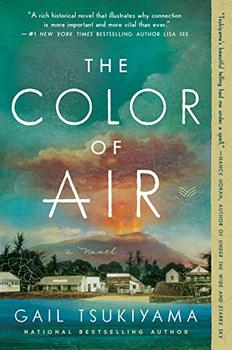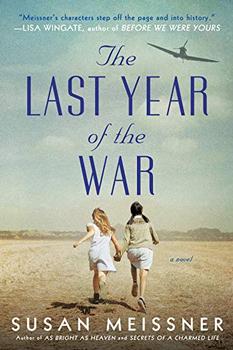Summary | Excerpt | Reading Guide | Reviews | Beyond the book | Read-Alikes | Genres & Themes | Author Bio

The highly anticipated sequel to Alan Brennert's acclaimed book club favorite, and national bestseller, Moloka'i
Alan Brennert's beloved novel Moloka'i, currently has over 600,000 copies in print. This companion tale tells the story of Ruth, the daughter that Rachel Kalama - quarantined for most of her life at the isolated leprosy settlement of Kalaupapa - was forced to give up at birth.
The book follows young Ruth from her arrival at the Kapi'olani Home for Girls in Honolulu, to her adoption by a Japanese couple who raise her on a strawberry and grape farm in California, her marriage and unjust internment at Manzanar Relocation Camp during World War II - and then, after the war, to the life-altering day when she receives a letter from a woman who says she is Ruth's birth mother, Rachel.
Daughter of Moloka'i expands upon Ruth and Rachel's 22-year relationship, only hinted at in Moloka'i. It's a richly emotional tale of two women - different in some ways, similar in others - who never expected to meet, much less come to love, one another. And for Ruth it is a story of discovery, the unfolding of a past she knew nothing about. Told in vivid, evocative prose that conjures up the beauty and history of both Hawaiian and Japanese cultures, it's the powerful and poignant tale that readers of Moloka'i have been awaiting for fifteen years.
Daughter of Moloka'i is a heartfelt novel that is sure to please Brennert's fans and win him many new ones. While the book doesn't really break new ground, his characters are so well-crafted that the book is eminently entertaining. It is highly recommended to book groups and to anyone wishing for look at another version of the Japanese-American experience in World War II...continued
Full Review
 (576 words)
(576 words)
(Reviewed by Kim Kovacs).
In Daughter of Moloka'i by Alan Brennert, the main character is forcibly taken from her mother and put up for adoption because her mother was diagnosed with leprosy. Also called Hansen's Disease, leprosy affects a person's skin and peripheral nerves causing a loss of sensation and tissue degeneration. Those impacted may experience the gradual loss of their extremities or even the amputation of a limb as hands and feet become deformed and eroded over time, generally because minor injuries go unnoticed and untreated. This is particularly true of populations who are poor and who may lack basic healthcare to treat such wounds.
The disease is caused by a bacillus called Mycrobacterium leprae (M. leprae). It's been a somewhat mysterious ...

If you liked Daughter of Moloka'i, try these:

by Gail Tsukiyama
Published 2021
From the New York Times bestselling author of Women of the Silk and The Samurai's Garden comes a gorgeous and evocative historical novel about a Japanese-American family set against the backdrop of Hawai'i's sugar plantations.

by Susan Meissner
Published 2020
From the acclaimed author of Secrets of a Charmed Life and As Bright as Heaven comes a novel about a German American teenager whose life changes forever when her immigrant family is sent to an internment camp during World War II.